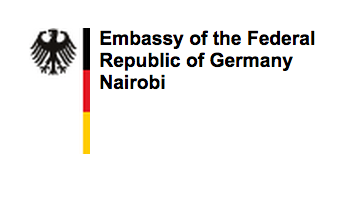Egypt’s Mubarak resigns after 30-year rule
 Cairo, Egypt (CNN) — Egyptian President Hosni Mubarak stepped down Friday and handed over power to the military — three decades of his iron-clad rule ended by an 18-day revolution.
Cairo, Egypt (CNN) — Egyptian President Hosni Mubarak stepped down Friday and handed over power to the military — three decades of his iron-clad rule ended by an 18-day revolution.
Vice President Omar Suleiman announced the resignation on state television and said the Supreme Council of the Armed Forces will “run the affairs of the country.”
Tens of thousands of emotional Egyptians exploded in deafening cheers on the streets of Cairo, electric with excitement. It was a moment they had anticipated throughout long days of relentless demonstrations — sometimes violent — that demanded Mubarak’s departure.
“Egypt is free!” and “God is Great,” they chanted in the honeymoon of the moment. They waved Egyptian flags, honked horns and set off fireworks as they savored a moment that just days ago had seemed unimaginable.
A source with close connections to Persian Gulf government leaders told CNN that Mubarak had fled to the Red Sea resort town of Sharm el-Sheikh.
In a televised speech the night before, Mubarak had indicated he was delegating authority to Suleiman, but Friday, the crowds calling for his ouster swelled throughout Cairo and in other major cities.
“I want to say: ‘Welcome back Egypt,” said Wael Ghonim, the Egyptian activist who became a reluctant hero of the revolution.
“In history books, they are going to use one word to describe you: dictator,” Ghonim said of Mubarak, who took power after the assassination of former President Anwar Sadat in 1981.
Ghonim — a Google executive who is on leave from his job and whose Facebook page is credited with triggering the popular uprising — was seized by security forces and released Monday. His words and tears in a television interview galvanized the protesters in Tahrir Square.
He said he knew Mubarak would be forced out after a revolt in Tunisia forced its leader out in January, and he said he believed the military can be trusted to respect the demands of the protesters.
Many of the anti-government protesters had been calling for Egypt’s powerful army, well-respected within the country, to take over as interim caretakers.
But it’s uncertain what will come next in the most populous nation of the Arab world, and how Egypt’s revolution, that succeeded on the 32nd anniversary of Iran’s, will reverberate throughout the region.
U.S. President Barack Obama was notified of Mubarak’s decision Friday morning, said Tommy Vietor, a spokesman for the National Security Council, and was closely watching the extraordinary developments unfold in Egypt, a key U.S. ally. He will make a statement Friday afternoon, the White House said.
Mubarak’s decision to step down is “obviously a welcome step,” said a U.S. official involved in the Egypt discussions. Now comes “an unpredictable next chapter,” the official added. It is “a sign the military chose society.”
Amre Moussa, the secretary-general of the Arab League, said Egyptians are “looking forward to a different (and) better future.”
But some analysts were already sounding the alarm over a military takeover.
“Suleiman’s statement is the clearest indication thus far that the military has carried out a coup led by Defense Minister Field Marshal Mohammed Hussein Tantawi,” analysts with the Stratfor global intelligence company said in a statement.
“Egypt is returning to the 1952 model of ruling the state via a council of army officers. The question now is to what extent the military elite will share power with its civilian counterparts,” the statement said.
Comments
comments
 Calendar
Calendar






































